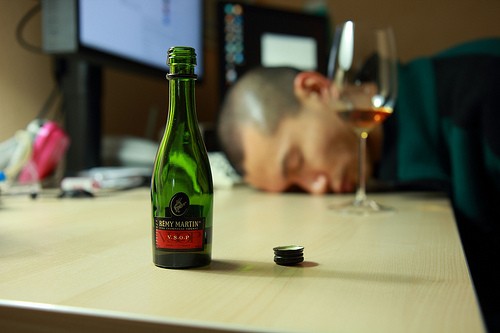
Regular consumption of alcohol can increase the risk of developing skin cancer melanoma, a new study reveals.
This occurrence is mainly because some biological changes caused by alcohol increases skin's sensitivity to the sun, making it more vulnerable to the UV exposure and irreparable damages, Daily Mail reported.
Melanoma is a cancer that starts in the cells that produce the melanin pigment. Melanoma can be identified through visible changes in size or colour of a mole. According to the American Cancer Society, exposure to the sun's ultraviolet (UV) radiation, through spending more time under the sun in the beach, living in a sunny area or engaging in activities like sunbathing and water sports, increases the risk of developing skin cancer. Apart from that, people with more number of sunburns, sun-damaged skin like liver spots, actinic keratosis and solar elastosis, are at a greater risk of developing skin cancer.
While talking about the findings, scientists said that the process through which ethanol is converted into chemical compound acetaldehyde may be playing a major role in this incidence. Acetaldehyde has long been known to make skin more sensitive to light, creating molecules known as reactive oxygen species, thus causing severe damages to the skin.
"We know that in the presence of UV radiation, drinking alcohol can alter the body's immunocompetence, the ability to produce a normal immune response," Dr Eva Negri, one of the authors of the study, told Daily Mail. "This can lead to far greater cellular damage and subsequently cause skin cancers to form. This study aimed to quantify the extent to which the melanoma risk is increased with alcohol intake, and we hope that armed with this knowledge people can better protect themselves in the sun."
The study, reported in the British Journal of Dermatology, looked at 16 studies conducted in the past and found that regular consumption of alcohol more than doubled the risk of skin cancer.
In the study, heavy drinking (more than four drinks a day) was associated with 55 percent additional risk of skin cancer, while people who took two or one drink daily had 18 and 10 percent greater risk of the deadly disease. Drinking less than one drink a day had 10 percent additional risk of the cancer.
















